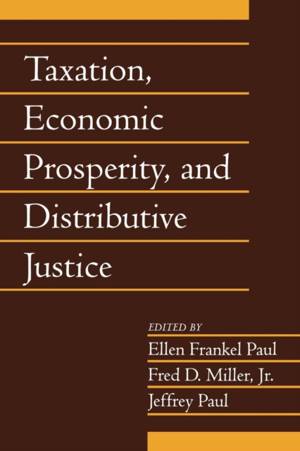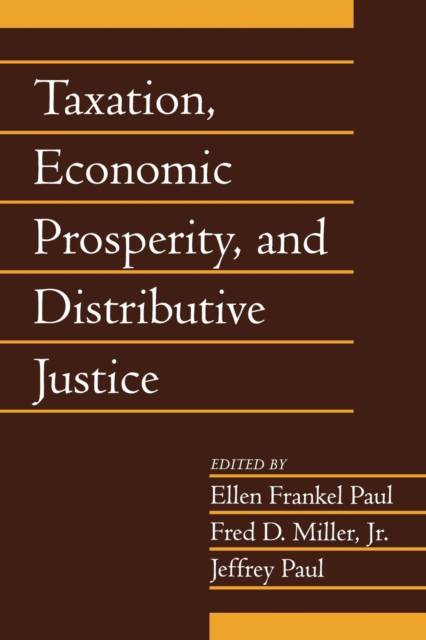
- Afhalen na 1 uur in een winkel met voorraad
- Gratis thuislevering in België vanaf € 30
- Ruim aanbod met 7 miljoen producten
- Afhalen na 1 uur in een winkel met voorraad
- Gratis thuislevering in België vanaf € 30
- Ruim aanbod met 7 miljoen producten
Zoeken
Taxation, Economic Prosperity, and Distributive Justice: Volume 23, Part 2
€ 40,45
+ 80 punten
Omschrijving
What constitutes a just tax system, and what are its moral foundations? Should a society's tax regime be designed to achieve a just distribution of wealth among its citizens, or should such a regime be designed to promote economic growth, rising standards of living, and increasing levels of employment? Are these two goals compatible or incompatible? Why should justice not require, or at least lead to, an increase in general prosperity? The essays in this volume examine the history of tax policies and the normative principles that have informed the selection of various types of taxes and tax regimes; economic data to discover which tax policies lead to economic growth; particular theories of justice or property rights regarding the design of tax systems; and other essays propose specific tax reforms. Still others challenge traditional theories of taxation, offering new ways of understanding the fiscal relationship between governments and their citizens.
Specificaties
Betrokkenen
- Uitgeverij:
Inhoud
- Aantal bladzijden:
- 316
- Taal:
- Engels
- Reeks:
Eigenschappen
- Productcode (EAN):
- 9780521685993
- Verschijningsdatum:
- 14/08/2006
- Uitvoering:
- Paperback
- Formaat:
- Trade paperback (VS)
- Afmetingen:
- 153 mm x 229 mm
- Gewicht:
- 426 g

Alleen bij Standaard Boekhandel
+ 80 punten op je klantenkaart van Standaard Boekhandel
Beoordelingen
We publiceren alleen reviews die voldoen aan de voorwaarden voor reviews. Bekijk onze voorwaarden voor reviews.










